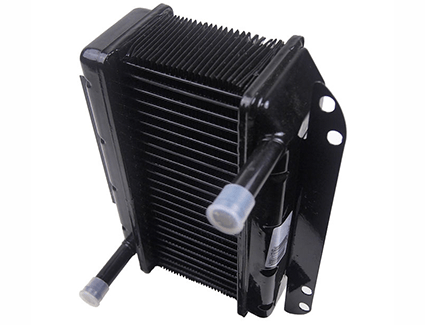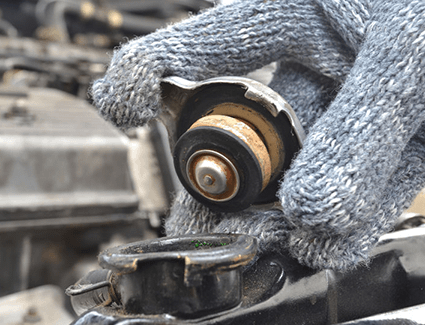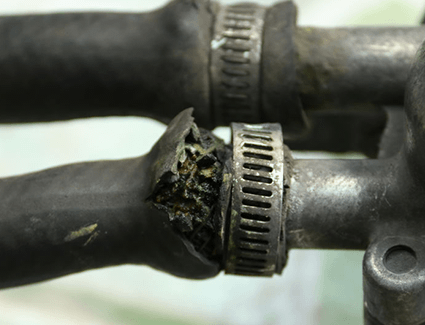Archer Volkswagen Maintenance Tips: 4 Common Causes Of Antifreeze Leaks

Archer Volkswagen Maintenance Tips: 4 Common Causes Of Antifreeze Leaks
Better known simply as "coolant," antifreeze is the stuff that cools your engine and also makes the heater run on a chilly day. It flows all throughout the engine and along various hoses to all sorts of other compartments under the hood. If a fitting comes loose, a crack develops or a gasket fails, you could find yourself waking up to a puddle of antifreeze under your car. And since antifreeze prevents your engine from overheating, it's crucial that your car has enough antifreeze in the system. Otherwise, the engine could get too hot and sustain severe damage! Here are four common causes of antifreeze leaks, explained by the pros at Archer Volkswagen.


4. Car Leaks Antifreeze When Heater Is On: Cracked Heater Core
As coolant flows through the engine, it draws heat away from the engine's moving metal parts. When you need heat in the cabin, coolant will flow to the heater core located right behind the dashboard. The coolant flowing inside heats up the heater core, and the blower fan blows air across the heater core, which warms it up as it flows through the climate vents and into the cabin. If the heater core suffers damage, it could leak -- and it might even leak hot coolant directly into the cabin! If antifreeze is collecting inside your car, the heater core will probably need to be replaced.
3. Car Leaks Antifreeze From The Reservoir: Bad Radiator Cap
The engine's cooling system is a pressurized system. That means even the filler cap needs to work correctly, or the whole system will underperform. The radiator cap is designed to hold the right pressure in the system. If the cap becomes cracked inside, it may fail to maintain pressure in the system. This can cause antifreeze to boil inside the reservoir, overflowing and even leaking out. Have your car's cooling system pressure tested at a certified Volkswagen service center. If it can't hold pressure, you'll just need a new radiator cap.
2. Car Leaks Antifreeze Onto The Ground When Parked: Hole In Radiator Hose
As you can tell, the coolant system in your car is rather complex, with many different components all over the engine bay. The rubberized hoses that connect them all must be snugly connected to the fittings and must not have any holes, or you'll have an antifreeze leak. A leak major enough to create a visible puddle on the ground could be due to a cracked hose, or a hose that's coming loose from a fitting. The hose material can degrade over time from exposure to heat, dirt and dust. It's a good idea to glance under the hood and take a look at the hoses from time to time. If the hoses have significant bulges, fraying, cracks or other visible wear, that could be a source of an antifreeze leak.

1. Car Leaks Antifreeze Down The Sides Of The Engine Block: Failed Head Gasket
If coolant is leaking onto (or even inside) the engine, that's almost certainly due to a leaky head gasket. The head gasket helps the engine block and cylinder head mate to one another, allowing oil and coolant to flow through their various channels and keep the pistons and valves cool, without getting antifreeze into the engine's combustion chambers.
Coolant leaking down the sides of the engine block is due to an external head gasket failure. If you're losing antifreeze but can't find a leak anywhere, it could be leaking inside the engine. The antifreeze is then burned up during combustion. If there's enough coolant getting burned up, you'll also be able to see white smoke coming from the exhaust. Either way, this indicates that your head gasket is failing, which can lead to very big problems in short order. You'll want to have a talented team of technicians replace the head gasket to protect your engine from overheating.



